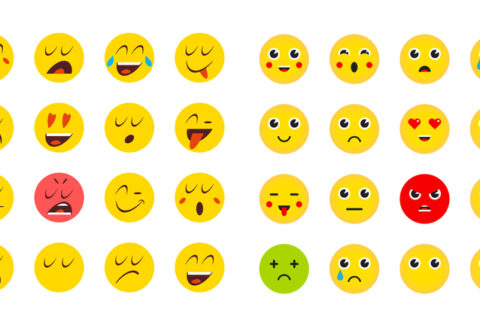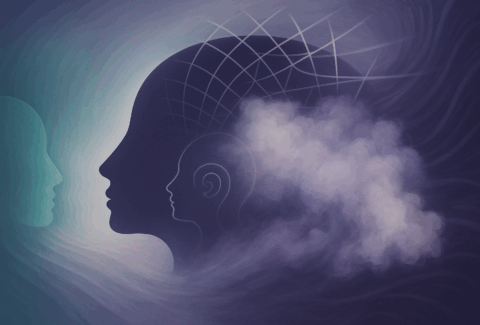Freudian Slips: The Science Behind the Unconscious Mind
Freudian slips[1], or parapraxes, are verbal blunders that reveal an individual’s unconscious thoughts, desires, or feelings. Named after Sigmund Freud, these slips are often seen as a window into the hidden aspects of the psyche. While Freud popularized the concept, the scientific investigation of these phenomena has evolved, offering insights from cognitive psychology, linguistics, and neuroscience.[2] This article examines the nature of Freudian slips, their psychological implications, and the extent to which they have been validated by empirical research.
Understanding Freudian Slips
Freud first introduced the idea of slips of the tongue in his work, The Psychopathology of Everyday Life[3]. He suggested that these errors were not merely random mistakes but rather expressions of repressed thoughts and emotions that emerge when an individual’s conscious mind is momentarily distracted. For example, saying “I’m glad to beat you” instead of “I’m glad to meet you” could suggest underlying hostility or competition.
Freud categorized these slips into several types, including:
- Speech Errors: Unintended mistakes in speech.
- Misdirected Actions: Errors in performing everyday tasks.
- Misremembering: Incorrect recollections that may reveal hidden truths.
While Freud’s theories have been criticized for their lack of empirical support, they laid the groundwork for understanding the relationship between unconscious processes and overt behavior.
Cognitive Psychology and Speech Production
Research in cognitive psychology has examined the mechanisms underlying speech production and the occurrence of errors.[4] Speech errors, including Freudian slips, can occur due to various cognitive factors. According to Levelt, language production is a complex, multi-stage process involving the conceptualization of thoughts, formulation of linguistic representations, and articulation. Errors can arise from competition among intended and unintended words or phrases, especially under conditions of cognitive overload or distraction.
A key study by Hartsuiker and Kolk[5] examined how lexical activation leads to speech errors. Their findings suggest that slips can result from interference between similar lexical items in the brain, indicating that while some errors may reflect deeper psychological conflicts, others may simply be a product of cognitive misfires.
Neuroscientific Perspectives
Neuroscience has contributed to understanding the brain mechanisms involved in speech production and error monitoring. Functional MRI (fMRI) studies have identified brain areas associated with language processing, such as the left inferior frontal gyrus. These areas are activated during both normal speech and the monitoring of speech errors, suggesting that the brain has a built-in system for detecting and correcting errors.[6]
However, the relationship between brain activation and Freudian slips remains complex. While some slips may correlate with unconscious thoughts, others may be purely incidental, arising from the brain’s language processing systems rather than reflecting deeper psychological issues.
Empirical Studies on Freudian Slips
While Freud’s theories have been challenged, several empirical studies have explored the idea that verbal slips can reveal hidden emotions or conflicts.[7] For example, a study by Dijksterhuis et al. showed that individuals often make better decisions when they are distracted, implying that unconscious processes can lead to more effective outcomes. However, the direct connection to Freudian slips is less clear.
Additionally, a review by Postma et al. highlighted that speech errors could sometimes be linked to emotional states, suggesting that heightened emotional contexts may increase the likelihood of revealing underlying feelings through slips.[8]
Limitations and Critiques
Despite the intriguing findings surrounding Freudian slips, several limitations exist.[9] Critics argue that attributing every slip to unconscious motivations oversimplifies the complexities of language production. Pinker notes, “The psychology of language is a complex interplay of many factors,” and suggests that cognitive processes, social context, and linguistic competition play significant roles in the occurrence of speech errors.
Furthermore, while studies show that emotion can influence speech production, the exact nature of this influence is still under investigation. It remains unclear how much of a Freudian slip reflects repressed thoughts versus situational factors influencing speech.
Conclusion
Freudian slips continue to fascinate psychologists and laypeople alike, serving as a compelling example of the interplay between conscious and unconscious processes. While empirical evidence supports the notion that cognitive factors contribute to speech errors, the direct link between these slips and repressed thoughts remains contentious. Ongoing research in cognitive psychology and neuroscience will likely continue to unravel the complexities of how our unconscious mind influences our speech, shedding light on the enduring relevance of Freudian concepts in contemporary psychology.
[1] Timpanaro, Sebastiano. The Freudian Slip. London: NLB, 1976.
[2] Timpanaro, Sebastiano. The Freudian slip: Psychoanalysis and textual criticism. Verso Books, 2011.
[3] Freud, Sigmund. Psychopathology of everyday life. Vol. 24. Penguin Group, 1938.
[4] Radulescu, Adina. “‘Slips of the tongue’–a psycholinguistic approach.” Economics, Management, and Financial Markets 6.2 (2011): 768-773.
[5] Hartsuiker, Robert J., and Herman HJ Kolk. “Syntactic facilitation in agrammatic sentence production.” Brain and Language 62.2 (1998): 221-254.
[6] Mandal, Ayan Sankar, et al. “Brain structures and cognitive abilities important for the self-monitoring of speech errors.” Neurobiology of Language 1.3 (2020).
[7] De Benedittis, G. D. “The (Re) Discovery of the Unconscious: What We Have Learned from Neuroscience.” Int J Cogn Behav 6 (2023): 017.
[8] Postma, Albert, and Claudy CE Oomen. “Critical issues in speech monitoring.” Phonological encoding and monitoring in normal and pathological speech (2005): 169-178.
[9] Timpanaro, Sebastiano. The Freudian slip: Psychoanalysis and textual criticism. Verso Books, 2011.







